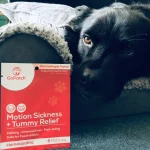
We’ve all been there – we plan a night out with friends only to dread the possibility of waking up with a hangover headache and feeling like crap. While the best and most obvious way to avoid a hangover is to drink in moderation or just skip alcohol altogether, there are plenty of tips and tricks to help reduce your chances of feeling terrible the next day. Here’s a guide to help you wake up with a smile and be ready to tackle the day after a night of drinking.
Tip #1: Hydrate, Hydrate, Hydrate!
Alcohol is a diuretic – meaning it dehydrates your body. Dehydration is a major contributor to hangover symptoms like headaches and feeling fatigued. Stay ahead of the game by drinking water throughout the evening. A good rule of thumb: match every alcoholic drink with a glass of water. Before going to bed, have another big glass of water. Trust me. Your body will thank you.
Tip #2: Don’t Drink on an Empty Stomach
Drinking on an empty stomach is NOT a good idea. Eating a solid meal before drinking slows down the rate at which the alcohol reaches the small intestine. This helps reduce the absorption pace to something your body can more easily manage. Foods rich in healthy fats, protein, and carbs can help buffer your stomach and keep your blood alcohol levels from spiking too quickly.
Tip #3: Pace Yourself
No matter how much alcohol is consumed, your body is only able to metabolize a certain amount – roughly one standard drink per hour. Drinking too quickly overwhelms your system, leading to intoxication and a higher likelihood of hangover symptoms. Sip slowly, enjoy the moment, and savor your drink instead of rushing through it.
Tip #4: Consider Taking Vitamins & Supplements
Some vitamins and supplements are said to help alleviate hangover symptoms. Vitamins B and C, magnesium, and zinc may support your body’s recovery process. However, these aren’t miracle cures, so pair them with other strategies for the best results.
Tip #5: Choose Your Drinks… Wisely
Not all alcoholic beverages are created equal when it comes to hangovers. Drinks with higher levels of congeners (byproducts of fermentation or distillation) like whiskey, red wine, and dark liquors are more likely to cause hangovers compared to lighter options like vodka or gin. Stick to clear liquors and avoid overly sugary mixers if possible.
Additionally, we’ve all heard the rule of thumb that mixing drinks will make your hangover worse. This is a myth – it has more to do with how much alcohol is being consumed. Nobody knows your body better than you do, so listen to it and make the decision to call it a night accordingly.
Tip #6: Know Your Limits
As briefly mentioned above, know your limits. Everyone’s tolerance for alcohol is different because everyone metabolizes alcohol differently. Listen to your body and don’t feel pressured to keep up with others. Recognizing when you’ve had enough is key to avoiding overindulgence—and a groggy, headache-filled morning.
Bonus Tip:
GoPatch Hangover Relief Patch is an all natural, side-effect free solution using active homeopathic ingredients to ease symptoms of nausea, dizziness and vomiting brought on by over drinking. Simply place our discreet, round patch over the navel, before going to bed and wake with a smile. Overnight your body’s natural healing response will begin to lessen symptoms.
Cheers to Smarter Choices
At the end of the day, enjoying alcohol responsibly comes down to knowing your limits, staying mindful, and taking care of your body. By following these tips—hydrating, eating well, pacing yourself, and listening to your body—you can significantly reduce the chances of a hangover and wake up with a smile and feeling refreshed. Remember, the goal is to enjoy the moment without sacrificing tomorrow. So, next time you raise a glass, make it a toast to balance and well-being!
Sources:
Does Alcohol Dehydrate You? | Healthline
Food and Alcohol: What You Need to Know | John Hopkins University
Alcohol’s Metabolism Could Be the Key to Its Risks | VeryWellMind
How Congeners in Alcohol Affect You (and Your Hangover) | Healthline


